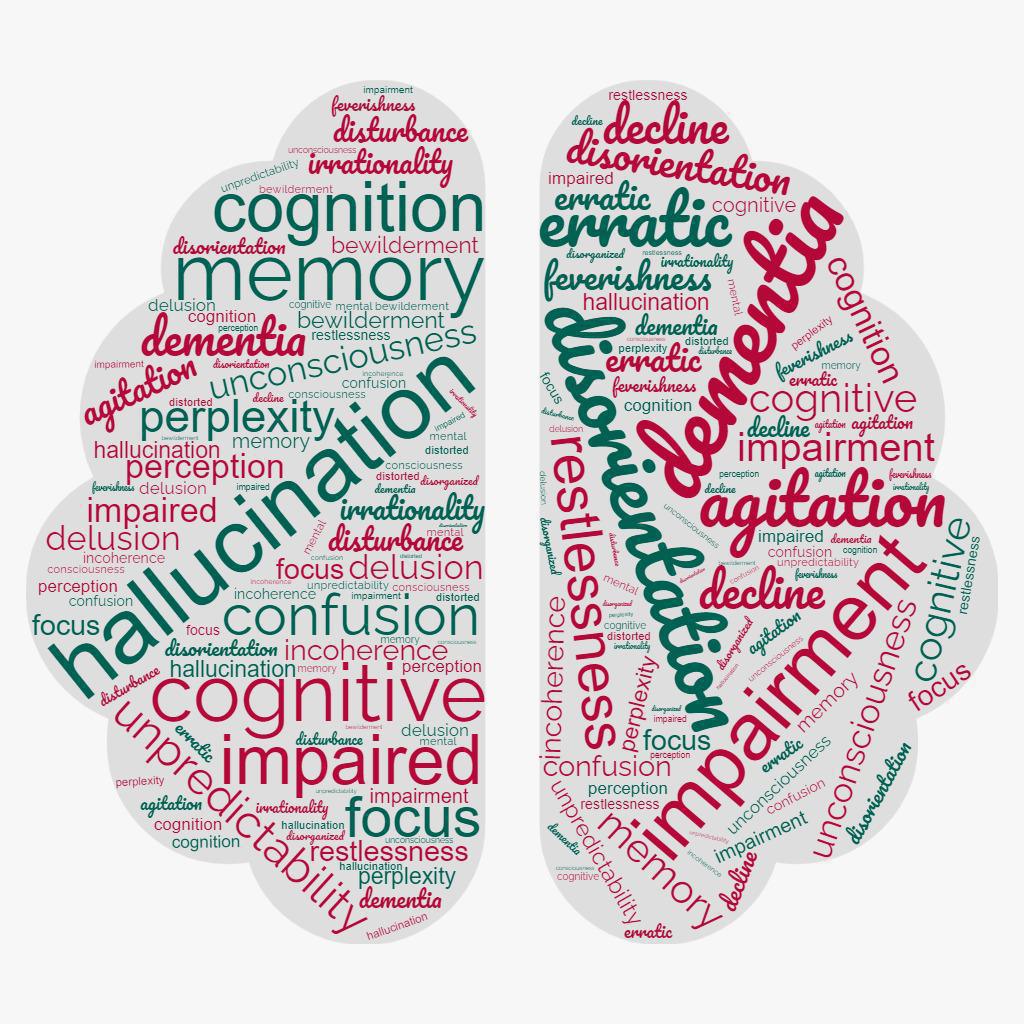Delirium can appear in different forms, making it harder to recognise in some cases. There are three main types:
- Hyperactive delirium – The person is restless, agitated, or aggressive.
- Hypoactive delirium – The person is quiet, withdrawn, or drowsy.
- Mixed delirium – The person switches between hyperactive and hypoactive states.
Hypoactive and mixed delirium can be harder to notice because the person may not seem distressed.
Delirium is commonly mistaken for dementia or depression or seen as a normal part of ageing—but it is a medical condition that requires attention.
Hyperactive Delirium
- Restlessness and wandering – Moving around aimlessly or trying to leave.
- Increased confusion – Trouble understanding what’s happening around them.
- Disorganised thinking – Thoughts may seem scattered or illogical.
- Inattention and disorientation – Difficulty focusing or recognising familiar people or places.
- Hallucinations or delusions – Seeing or believing things that aren’t real.
- Sleep disturbances – Sleeping too little or at unusual times.
- Aggression or agitation – Easily upset, angry, or resistant to care.
- Rapid mood swings – Emotions change quickly without clear reason.
Hypoactive Delirium
- Poor concentration and interaction – Less interest in talking or responding.
- Lethargy and apathy – Low energy, lack of motivation.
- Sluggishness and slow responses – Delayed reactions to questions or actions.
- Drowsiness and decreased alertness – May appear sleepy or unaware of surroundings.
- Staring into space – Fixed gaze, little facial expression.
- Reduced movement – Moves less than usual, may seem physically weak.
- Reduced appetite – Eating and drinking less.
Mixed Delirium
- Symptoms switch between hyperactive and hypoactive states.
- A person may seem agitated at one moment and withdrawn at the next.
This is not a complete list of symptoms, and signs can vary from person to person.
Recognising delirium early is important so that the underlying cause can be treated. If you notice sudden changes in behaviour, thinking, or alertness, seek medical advice.
| Hyperactive | Mixed | Hypoactive |
|---|---|---|
|
|
|
| *Not an exhaustive list | ||

